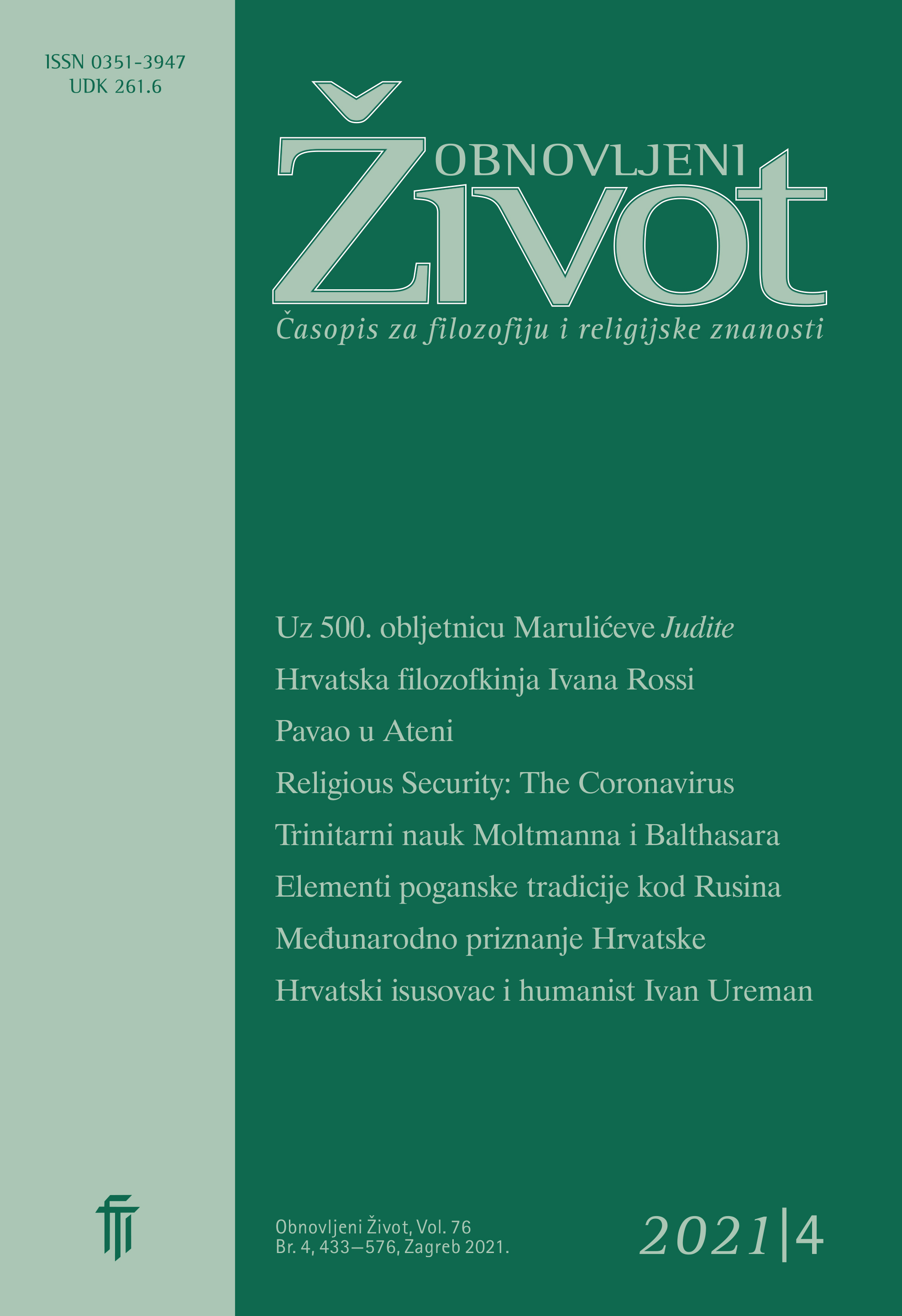The Croatian Woman Philosopher Ivana Rossi on the Philosophy of Henry Bergson
Keywords:
Ivana Rossi, Henri Bergson, woman philosopher, dissertation, reception of Bergson’s philosophy, psychology, metaphysicsAbstract
The Croatian woman philosopher Ivana Rossi (1892–1963) was the first Croatian woman to defend a doctorate in philosophy in 1916 at the Faculty of Philosophy in Zagreb. The topic of her dissertation was „The Basic Thoughts of Henry Bergson’s Philosophy“ (Osnovne misli filozofije Henri Bergsona). This dissertation was written much before Henri Bergson’s death in 1941, while he was professionally still very active. Ivana Rossi’s dissertation is the first serious presentation of Henri Bergson’s philosophical thought among the South Slavs. For hitherto unknown reasons — mostly likely personal — Ivana Rossi did not even attempt to work as a professional philosopher in the Academia. (She spent her entire professional career as a high school teacher in Zagreb, working in three different gymnasia: the “Kraljevska ženska realna gimnazija”, the “Partizanska realna gimnazija”, and the “III. muška realna gimnazija”.) In 1929, she published the article, „Some of Henri Bergson’s Thoughts on Aesthetics“ in the journal Književnik. Her second published work is her translation of James Barrie’s „Peter Pan in Kensington Park“ published in 1922. This book is the first Croatian translation of a book on Peter Pan. In this article, in addition to the hitherto little–known biography of Ivana Rossi and the reception of Bergson’s philosophy in Croatia, the author also presents a summary of her dissertation.
Downloads
Published
Issue
Section
License
Jednom prihvaćeni članak obvezuje autora da ga ne smije objaviti drugdje bez dozvole uredništva, a i tada samo uz bilješku da je objavljen prvi put u Obnovljenom životu. Uredništvo će obavijestiti autora o prihvaćanju ili neprihvaćanju članka za objavljivanje.
Članci objavljeni u časopisu se, uz prikladno navođenje izvora, smiju besplatno koristiti u obrazovne i druge nekomercijalne svrhe.


